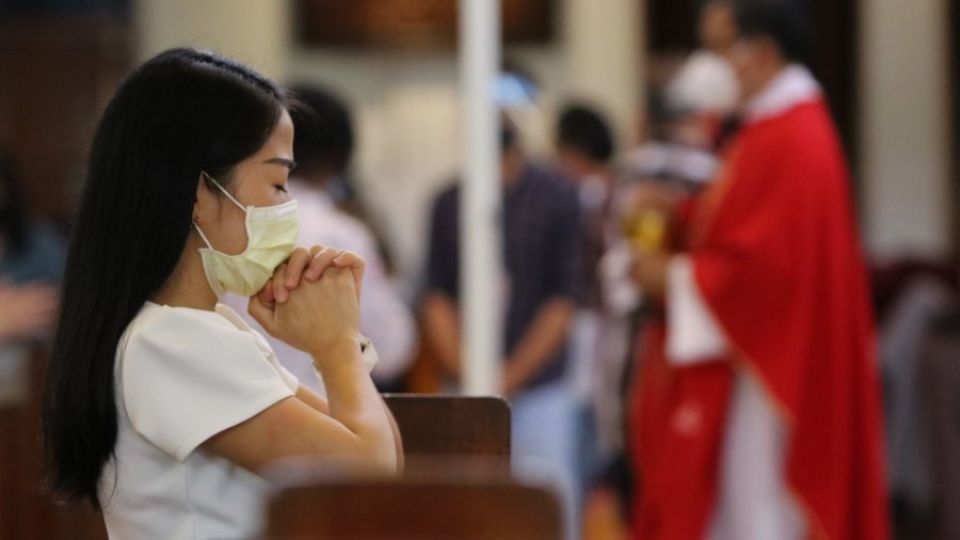September 13, 2023
JAKARTA – The government will no longer use the term Isa Al-Masih when referring to Christian holidays, ending decades of state policy to refer to Jesus Christ, a key figure in the Christian faith that is professed by millions of Indonesians, by his Islamic name.
While Indonesian Christians invoke the name Yesus Kristus in their prayers, the state has used the nomenclature Isa Al-Masih for at least two Christian holidays: Good Friday (Wafatnya Isa Al-Masih) and the Ascension of Christ (Kenaikan Isa Al-Masih). Starting 2024, it will officially use the name Yesus Kristus instead.
“There will be a change in the nomenclature [regarding the names of the holidays] as proposed by the Religious Affairs Minister,” Coordinating Minister for Human Development and Culture Muhadjir Effendy said on Tuesday. “The name Isa Al-Masih will be changed into Yesus Kristus.”
The minister revealed the new policy when announcing the dates for 17 national holidays, including three Christian holidays, and 10 days of joint leave for 2024.
The policy change could be more than just a problem of semantics for some people, given that Muslims and Christians have fundamentally different views of Jesus. Mainstream Muslims consider Jesus as the penultimate prophet of Islam, while mainstream Christians see the religious figure as God-incarnate and the way to eternal salvation.
Wardhany Tsa Tsia, 29, applauded the government’s move to change the national holiday’s name from Isa Almasih to Yesus Kristus, seeing it as a move to accommodate the interests of Christians. “This is the right decision because, in Catholicism, it seems like we never use the word Isa Almasih, but we use Jesus Christ, so the government has taken the right step,” Tsa Tsia said on Tuesday.
Anastasia Sidebang, a 31-year-old Catholic, welcomed the government move, adding that she had no problem with the name Isa Almasih or Jesus Christ in the holiday’s name as long as all people can worship safely.
Meanwhile, Yogi Ernes, 28, Christian said the government’s move to change the name of the holiday proves that the Religious Affairs Ministry is present for all people.
Yet, not all Christians think the policy change is a big deal. Francisca Christy Rossana, 31, for example, said the change was unnecessary as people already knew that Isa Almasih is Jesus Christ, adding that the name is interchangeable.
Deputy Religious Affairs Minister Saiful Rahmat said that the policy change was not a state initiative, but was put forward by Indonesian Christians.
“It was a proposal from the Protestant and Catholic communities that the nomenclature be changed into the one that they believe in,” he said as quoted by liputan6.com. “It is their proposal; we fought for it, and Alhamdulillah [thank God], our request was granted.”
While Muslim-Christian relations in Indonesia are often described as being fragile, as indicated by the frequent disputes over church permits and the recurrent controversy over whether Muslims can say “Merry Christmas” to Christians, the two religious communities have largely lived peacefully with no major issues over religious semantics.
In Indonesia, both Muslims and Christians use the term Allah to refer to God. The same word sparked tensions in neighboring Malaysia, which has only recently ruled that non-Muslims can use the word in their religious scriptures and propagation materials.
A directive issued by the Malaysian Home Ministry bans the use of the word Allah in Christian publications, which was used by the Malaysian authorities to seize compact discs belonging to a Christian that bore the word Allah on them. The directive was declared “unconstitutional” by Malaysia’s High Court in March 2021, and the government decided in May this year to drop its plan to appeal the landmark ruling.
Indonesian Christians also use several Arabic words in their religious discourses such as Alkitab for the Bible, Injil for the Gospels and jemaat for congregations. (ahw)


